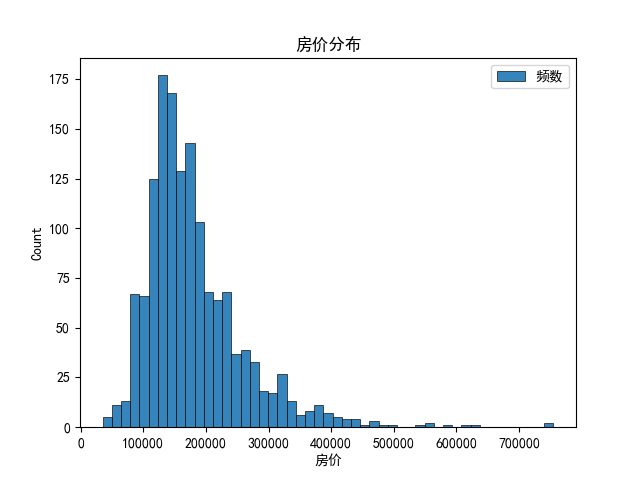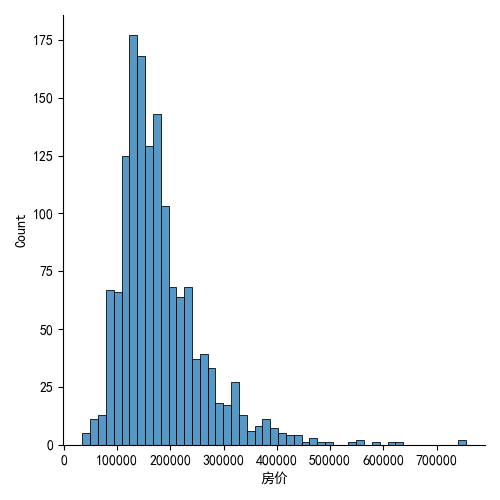python画连续变量柱状图
弗里德曼-迪亚科尼斯规则
在统计学中,Freedman-Diaconis规则用于确定直方图中的条柱宽度, 它以David A.Freedman和Persi Diaconis的名字命名。该规则定义:
其中,IQR是四分位距,n是观测样本数目。
import numpy as np
import pandas as pd
import seaborn as sns
from matplotlib import pyplot as plt
plt.rcParams["font.sans-serif"] = ["SimHei"]
# 1. 导入数据
file_path = r"../../机器学习数据/data_train.csv"
df = pd.read_csv(file_path, encoding='gbk')
# 2. 查看数据
# print(df.head())
# print(df.columns)
# print(df.info)
# print(df.isnull().sum()) # 检查空值
std = df["房价"].describe()
def freedman_diaconis(x):
"""
:param x: 输入数据
:return num_bin: 条柱数目
"""
static = x.describe()
IQR = static["75%"] - static["25%"]
bin_width = (2 * IQR) / np.power(x.shape[0], 1 / 3)
x_max, x_min = static["max"], static["min"]
num_bin = int(((x_max - x_min) / bin_width) + 1)
return num_bin
bins = freedman_diaconis(df["房价"]) # 箱子数目
plt.figure()
plt.hist(df["房价"], bins=bins, edgecolor="black", linewidth=0.5, alpha=0.9)
plt.title("房价分布")
plt.xlabel("房价")
plt.ylabel("Count")
plt.legend({"频数"})
sns.displot(df["房价"])
plt.show()
模仿:

sns.displot():





【推荐】国内首个AI IDE,深度理解中文开发场景,立即下载体验Trae
【推荐】编程新体验,更懂你的AI,立即体验豆包MarsCode编程助手
【推荐】抖音旗下AI助手豆包,你的智能百科全书,全免费不限次数
【推荐】轻量又高性能的 SSH 工具 IShell:AI 加持,快人一步
· 周边上新:园子的第一款马克杯温暖上架
· 分享 3 个 .NET 开源的文件压缩处理库,助力快速实现文件压缩解压功能!
· Ollama——大语言模型本地部署的极速利器
· DeepSeek如何颠覆传统软件测试?测试工程师会被淘汰吗?
· 使用C#创建一个MCP客户端